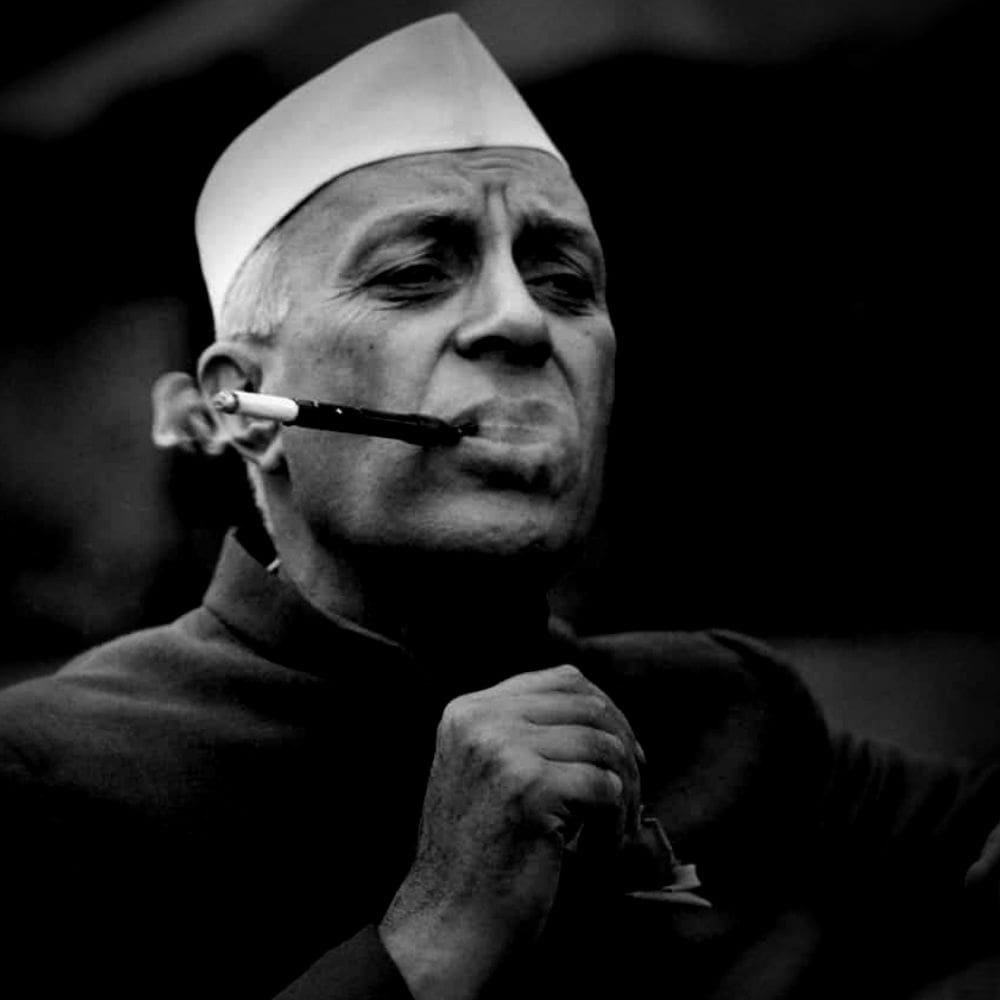UNCONDITIONAL J&K ACCESSION MADE CONDITIONAL
Was the ‘Instrument of Accession’ signed by Maharaja Hari Singh for J&K different from the other Princely States, and did it incorporate some special provisions? NO. The Instrument of Accession was standard and common for all Princely States. There was no provision in it for any ruler to add or subtract conditions. It was required to be signed unchanged.
Enclosing his signed ‘Instrument of Accession’ in the standard format (like for all the other princely states), Maharaja Hari Singh wrote to the Governor-General of India Mountbatten on 26 October 1947:
“With the conditions obtaining at present in my state and the great emergency of the situation as it exists, I have no option but to ask for help from the Indian Dominion. Naturally they cannot send the help asked for by me without my State acceding to the Dominion of India. I have accordingly decided to do so and I attach the Instrument of Accession for acceptance by your Government.”
With regard to J&K, it is worth re-emphasising that (a)the Instrument of Accession signed was no different from those signed by the other Princely States; (b)it was signed by Hari Singh unconditionally; and (c)it was accepted by the Governor General, Lord Mountbatten, unconditionally. That is, the whole process was no different from the one that applied to the other 547 Princely States that acceded to India (please note that the other 14 of the 562 had acceded to Pakistan).
Through a separate letter, however, Mountbatten advised Maharaja Hari Singh that the accession was subject to reference to the people of J&K:
“In the special circumstances mentioned by Your Highness, my Government have decided to accept the accession of Kashmir State to the Dominion of India. Consistent with their policy that, in the case of any State where the issue of accession has been the subject of dispute, the question of accession should be decided in accordance with the wishes of the people of the State, it is my Government’s wish that, as soon as law and order have been restored in Kashmir and her soil cleared of the invader, the question of the State’s accession should be settled by a reference to the people…”
Notably, the Maharaja had put no conditions on accession. In fact, even Sheikh Abdullah, who had favoured accession to India, never insisted on this condition—rather, he wanted it to be unconditional, lest any uncertainty should remain.
Who gave Mountbatten the authority to write such a letter? Who was he to make the accession conditional? Was he still the Viceroy of the British India serving the British interests, or was he the Governor General of independent India? Why did Nehru not object? Why had the Indian Cabinet and leaders, particularly Nehru, not made it clear to him that he could not act on his own on critical matters—that he had to take the permission of the cabinet? One can understand conditions being stipulated by the party offering you the favour of accession. But, for the party being favoured with accession to stipulate conditions—that’s absurd.
Had it been a Governor General who was an Indian like say Dr Ambedkar or Dr Rajendra Prasad or Rajagopalachari or Mahatma Gandhi (Wonder why he didn’t wish to take on any official responsibility after independence, and leave the top post to a British!) himself, and not a British like Mountbatten, would he have tried to make the accession conditional? And, had he done so, would the Indian public have ever forgiven him? Or, was it that Nehru acquiesced to writing of such a letter by Mountbatten? (—yet another blunder?) Even if the deed was done without Nehru’s knowledge (unlikely), Nehru should have objected to it and should have got it annulled or withdrawn.
STIPULATION OF ‘REFERENCE TO PEOPLE’: ILLEGAL
The Indian Independence Act 1947 enacted by the British Parliament also incorporated the Memorandum on States’ Treaties and Paramountcy of 12 May 1946 as per which the princely states were to regain full sovereignty with the creation of the two dominions of India and Pakistan from the British India on 15 August 1947, with the ruler of the Princely State being the ONLY authority to offer accession to India or Pakistan, or to remain independent, regardless of the religious composition of the people of that state, there being NO provision for ‘reference to the people’ or plebiscite.
Therefore, with the signing of the Instrument of Accession unconditionally by the Maharaja of J&K on 26 October 1947 in favour of India, J&K’s accession to India was full, final, irrevocable and totally legal as per the International Law. Legally, that separate letter of Mountbatten (please see above) made absolutely NO difference. In fact, Mountbatten’s action of writing the above letter was unconstitutional and illegal. Even Nehru had NO legal authority to approve of such a letter. What is more, there was NO cabinet sanction for it!
India should have stuck to this incontestable legal position of the irrevocable accession of J&K to India, like for the other 547 states, on the strength of the signing of the Instrument of Accession. This is what Sardar Patel strongly advocated. Even US considered ours as an ironclad legal position in 1948. Writes C Dasgupta in his book, ‘War and Diplomacy in Kashmir 1947-48’: “The fundamental difference between the American and British positions lay in the fact that the United States was prepared in 1947- 48 to recognise India’s sovereign rights in Kashmir.” However, Nehru failed to leverage on that.
The funny thing is that the “reference to the people” or plebiscite was requested neither by Maharaja Hari Singh, nor by Sheikh Abdullah, nor by the people of J&K, nor even by Jinnah(!!) at that time! It was only thanks to Mountbatten and Nehru!


